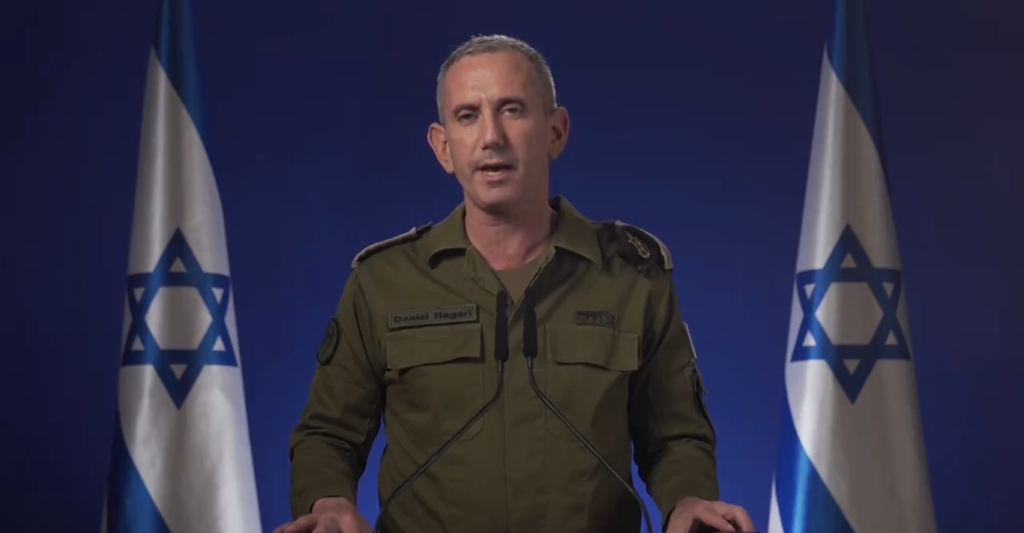In a significant disclosure regarding Hezbollah’s financial operations, Rear Admiral Daniel Hagari, the spokesperson for the Israel Defense Forces (IDF), indicated that the terrorist organization’s wealth is stored in a bunker directly underneath Al-Sahel Hospital in Beirut. In his announcement, Hagari emphasized the urgent need to expose Hezbollah’s financial network, which he claims is fueled by a combination of Iranian support and contributions from Lebanese citizens. He detailed how Hezbollah has capitalized on Lebanon’s ongoing financial crisis, primarily through its financial arm, the Al-Qard al-Hasan Association. This organization reportedly undermines international law and has attracted sanctions from the United States and other nations, highlighting the complicated interplay between regional politics and financial activities.
Hezbollah’s funding mechanisms, according to Hagari, rely heavily on two primary sources: Iranian financial resources and local Lebanese support. The Iranian regime, through its Quds Forces, siphons money from oil sales in Syria to fund Hezbollah, and even transports cash and gold directly to the organization via the Iranian embassy in Beirut. Additionally, the group has established factories across the region, including in Syria, Lebanon, Yemen, and Turkey, generating supplementary income for its terrorist financing activities. By exploiting these various revenue streams, Hezbollah has bolstered its operational capacity despite the deteriorating economic outlook in Lebanon, which further exacerbates local hardships for Lebanese citizens.
Hagari also pointed out that the unit responsible for managing Hezbollah’s financial network, identified as Unit 4,400, has recently undergone leadership changes due to targeted strikes by the IDF. Jafar Ksir, known as Sheikh Salah, was reportedly killed in early October, and his successor was also eliminated shortly afterward during an operation in Syria. The IDF’s efforts focus on curbing Hezbollah’s ability to replenish its resources and rearm, as the continuation of these activities not only jeopardizes Israeli security but also poses a significant threat to the Lebanese economy. With Iranian cash infiltrating Lebanon, the local currency—the Lebanese pound—has faced depreciation, worsened by the lack of stability in the region.
In the context of military operations against Hezbollah, the IDF announced a series of airstrikes targeting the organization’s financial infrastructure, particularly in the Dahieh area, which is known for its Hezbollah presence. Residents were warned to evacuate nearby financial facilities to minimize civilian casualties during the strikes. Hagari underscored that one crucial target was a secret vault containing vast sums of cash and gold, utilized for financing attacks against Israel. This vault, strategically placed beneath a civilian building, exemplifies Hezbollah’s willingness to endanger civilians for its operational gains.
In a dramatic turn of events, Hagari disclosed further intelligence regarding another financial hub located in Hassan Nasrallah’s bunker. This bunker is noted for its extensive infrastructure, including living quarters and operational facilities necessary for conducting warfare from underground. Despite the alarming financial implications of the revelation, Hagari reassured the public that the IDF does not intend to strike civilian infrastructure like Al-Sahel Hospital itself. He emphasized that the conflict is not with the Lebanese populace but focused squarely on countering Hezbollah’s military capabilities, thereby safeguarding the security of Israeli civilians.
Hagari concluded his remarks by calling upon the Lebanese authorities and international organizations to intervene and prevent Hezbollah from misusing these financial resources for terroristic purposes. He reiterated the IDF’s commitment to monitoring the situation closely, asserting that any operations would be aimed solely at dismantling Hezbollah’s terror financing apparatus while preserving civilian safety. The IDF’s ongoing efforts represent a dual strategy of military action and diplomatic appeals, stressing that the true objective is to restore security to the northern region of Israel and foster stability within Lebanon, free from the shadow of Hezbollah’s influence.

